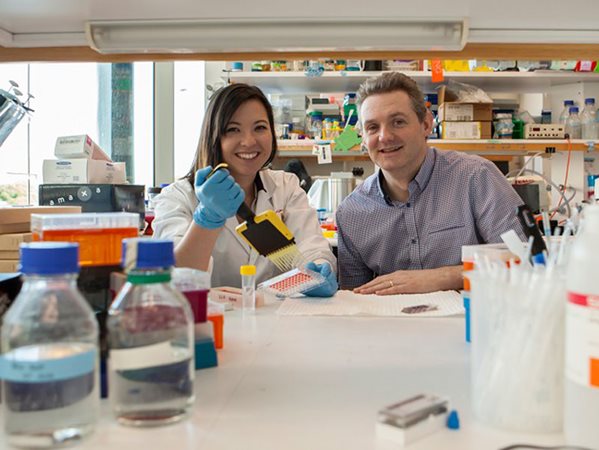Using smarter new drugs to reduce long term debilitating side effects for aggressive childhood brain

Recipient: Professor Nick Gottardo and Dr Raelene Endersby
Institute: Telethon Kids Institute
Funding: $246,713 July 2020 to June 2021
Researching improved medulloblastoma outcomes
This study is funded in collaboration with the Ronald Geoffrey Arnott Foundation and the Pirate Ship Foundation.
Brain tumours are the most common cause of disease-related death in children. Despite advances in treatments for many other cancers, overall survival in paediatric brain tumours has stagnated for the last 30 years.
The focus of this study is medulloblastoma, the most common children’s brain cancer. Typically, tumours are treated with surgery followed by chemotherapy and radiotherapy. Radiation is an essential component of treatment but has very damaging side-effects in children, with fewer than one in 20 survivors able to lead independent lives due to intellectual disability among other side effects such as deafness. To improve long-term outcomes, new treatment regimens that facilitate a reduction in radiation dose without compromising survival rates must be developed.
Using sophisticated laboratory models of medulloblastoma and innovative new equipment, the Telethon Kids Institute’s Brain Tumour Research Team discovered that drugs that inhibit a protein called ATR are effective in reducing medulloblastoma tumours in combination with radiation therapy. Now, the team will continue their work and undertake additional testing to obtain clinically relevant data to rapidly translate findings from the lab to the most promising new therapies into the clinic.

